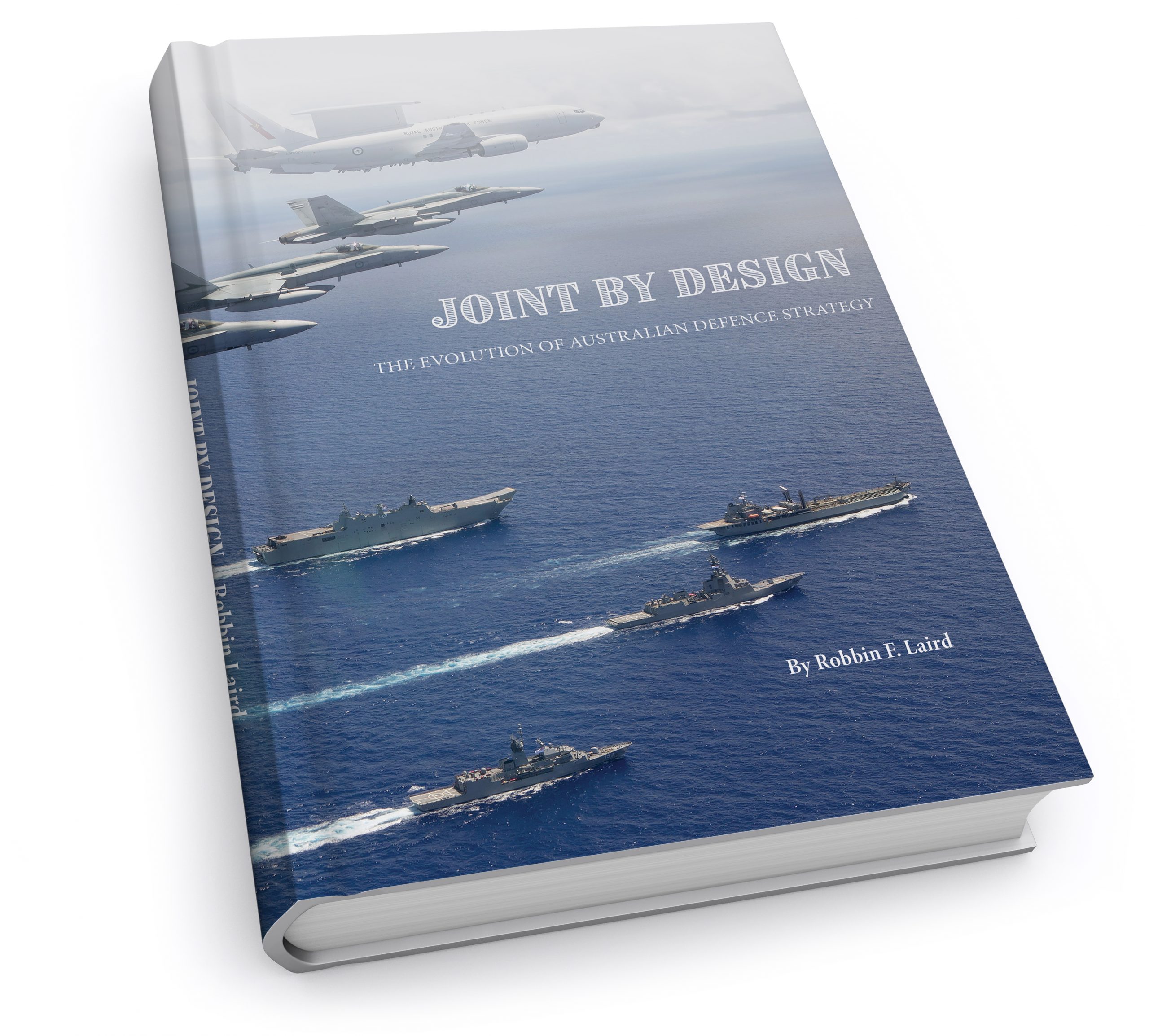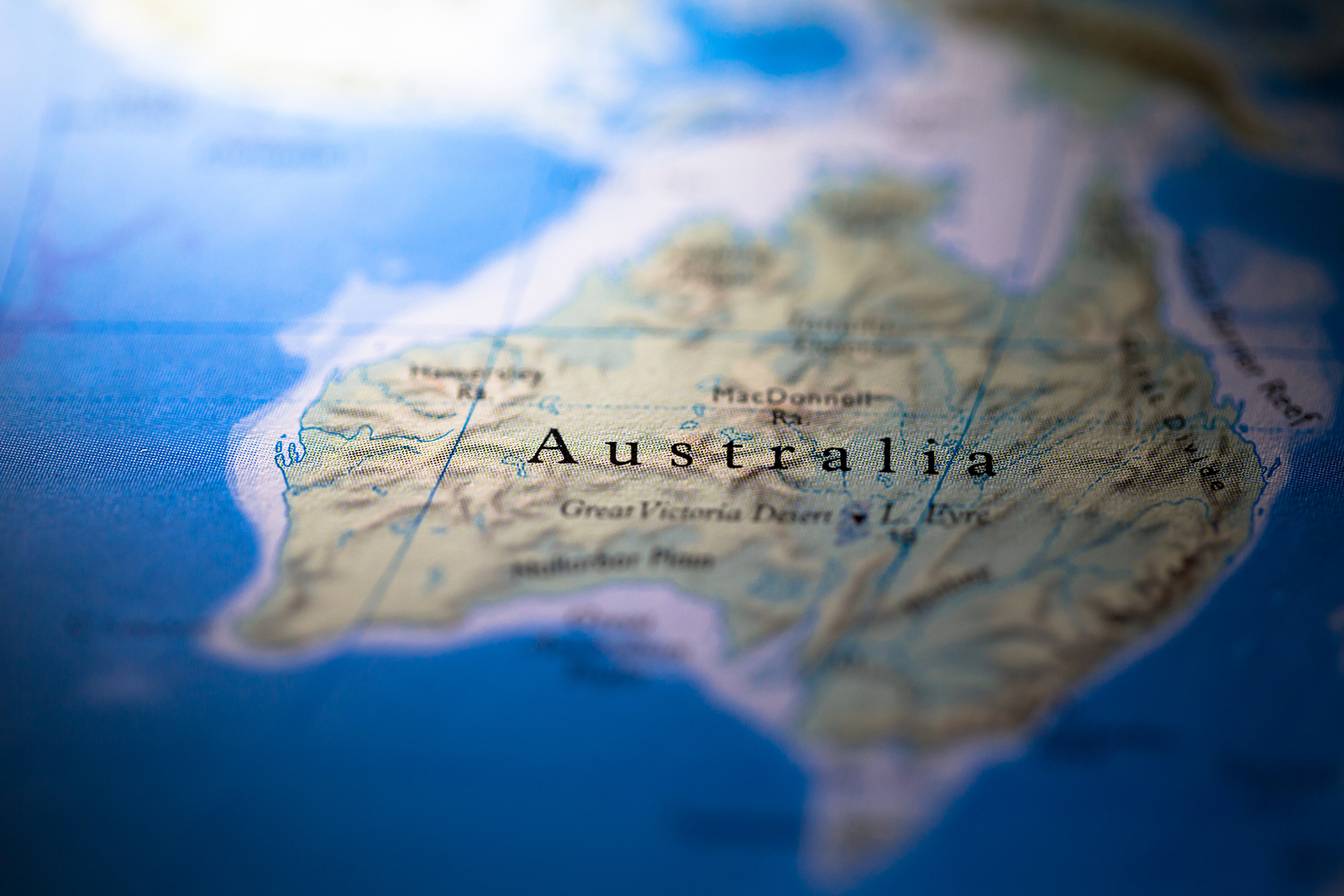By Robbin Laird
I am in the throes of finishing up my book on the evolution of Australian defence strategy over the past several years, from 2014 until now.
With the announcement of the new government defence strategy by Prime Minister Morrison on July 1, 2020, it seemed a good time to draw together the work I have done over the past several years in Australia.
The book provides a detailed narrative of the evolution over the past few years of how Australia got to the point where it currently is with regard to national defense.
Hopefully, the book will provide a helpful summary of that evolution. It is based on the Williams Foundation Seminars over this period, and highlights the insights provided by the practitioners of military art and strategy who have presented and participated in those seminars.
In that sense, this book provides a detailed look at the strategic trajectory from 2014 through 2020.
During my visits to Australia during this time, one of my interlocutors in discussing Australian and global developments has been Jim Molan, retired senior Australian Army officer and now a Senator. I have included in the book, the interviews I did with Senator Molan in the appendix to the book as a good look into the dynamics of change being undergone over the past few years.
Recently, Senator Molan has launched a podcast series looking at the way ahead and how Australia might address the challenges which its faces.
I am going to highlight those podcasts and summarize the main elements of his argument on this website.
He has entitled his podcast series: “Noise Before Defeat.”
This is how the series is described on his website:
“Australia is in a time of uncertainty and faces real peril.
“We are being challenged on the political, economic and public health fronts.
“Senator Jim Molan AO DSC has seen the best and worst of what Australia might experience over the next decade.
“His series of six podcasts with host Sarah Davidson explains that we need to get organised at the national level to face these challenges: otherwise, all our separate activity is just ‘Noise Before Defeat’.”
In the first podcast, Molan addresses the question of “Haven’t we done enough on security?”
This is how the website describes this first podcast:
“Jim and Sarah take you into the world of national security. Jim explains the threats to Australia, its alliance with the United States, strategy and defence spending, and his reasons for pursuing a stronger Australia with such passion. He and Sarah explore why all Australians should be interested in and informed about these topics, and why preparation is a critical national endeavour.”
Molan underscores: “These are new times for Australia and Australia must adjust. We face a number of critical issues and this podcast will address them. The most immediate issue, as we all know is COVID, we’re working to overcome the health and the economic consequences, and that’s bad enough, but we can manage our way out of it. And we’re doing that.”
Australia faces an Uncertain Strategic Environment
“In the 75 years since the end of World War II. and you mentioned World War II, the U.S. by being the strongest superpower in the world, guaranteed both our freedom and they have prosperity and that’s important.
“This is pretty special.
“The U.S. did that by guaranteeing stability across their trading partners and across the sea routes that make trading possible. And I’m not saying that the U.S. is perfect, and it’s got plenty of problems at the moment. I’ve worked in the belly of that beast. I know its failures and its strengths. I fought alongside soldiers in war time. Like all of us it’s far from perfect, but at least it shares our values and interests and that’s critically important.
“Two developments have ended this extraordinary situation where we have enjoyed prosperity and security for the last 75 years. First, United States is not as strong as it used to be compared to other powers since the end of the Cold War in about 1991. 17 years of war in the Middle East, the Obama administration, and a general tiredness in the U.S. of being the world’s policeman is the reasons. This is a critical factor to think about. Everyone thinks that U.S. power is infinite, and it is not.
“The second event that’s happened is the rise of other powers.
“And that’s really what this podcast is about. Particularly China, Russia, Iran and North Korea, as well as the continuing presence of Islamic extremism, the U.S. is being challenged as we are by these authoritarian regimes who are hostile to liberal democracies because we represent an alternative to their control of their populations and so are a threat to them.
“We in Australia had the luxury of becoming very rich and very secure without, as a society having to do much of it. So as I say, now the world has changed. We in Australia must look after ourselves much more than it has occurred for decades, especially as regards to the possibility of conflict and war.
“What COVID has shown us is that we, as a nation have really frightening vulnerabilities to external interference. We’re far too dependent on countries that might be hostile to us. And not everyone loves Australians as some of us think.”
The Shift from Wars of Choice to the Direct Defense of Australia
“We weren’t being threatened by anyone and we couldn’t foresee at least for the next 10 years that we were going to be threatened by anyone. And the series of white papers from 1976 until 2016 had the statement in them that there was no threat to Australia for 10 years.
“As a result of that statement, of course, you didn’t have to prepare the Australian defense force for any (direct) threat (to Australia.
“And we could spend what we wanted to spend on the defense force. And it was the defense force that went away to war. The nation didn’t go to war.
“We carried the burden of those Wars of Choice all through that period from all through the post-war period.
“Now I spent many, many years in the defense force fighting the defense force for my view of what the army and what the defense force should look like. I’ve really given up on that because you can take on every issue that you want. You can take on the issue of strike fighters in the air force, of submarines, of armed vehicles and fight every battle. But if you get the strategy right at the top, everything else falls out cleverly underneath.
“We’ve had inquiry after inquiry into the problems that the defense forces faced and all those inquiries stopped at one step below government. And my view is that government is responsible for the strategy.
“It is up to us in government to solve the problem of uncertainty by coming up with a strategy. We don’t have to identify exactly who we’re going to fight, but we do have a responsibility for identifying exactly what the characteristics of such a fight might be and signed to ourselves. Can we do that?
“In 2016, when our defense strategy came out and we decided that no enemy was going to threaten us for 10 years, we didn’t say to ourselves, if it takes an enemy 10 years, which was ridiculous, to threaten us, why would it be that we in Australia didn’t need the same 10 years to prepare for such a threat.”
In the later podcasts, he focuses on the strategic shift for Australia and what that means for shaping a comprehensive national security strategy.



